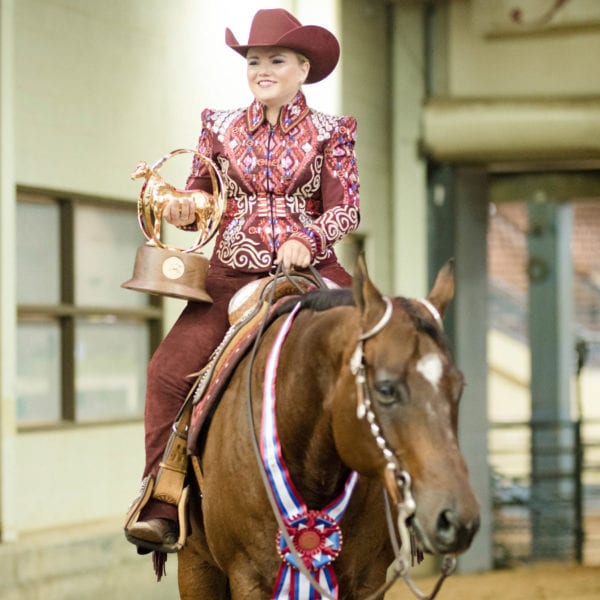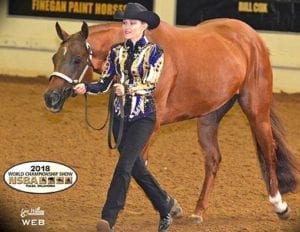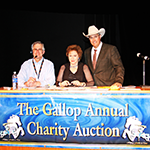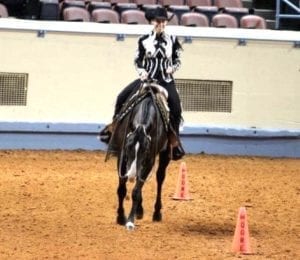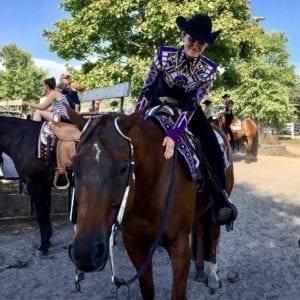Some horses, like some people, are just not made for retirement. They want a job, a routine and a purpose. While they may enjoy a lighter workload and spending more days grazing in a pasture, they still have the drive to keep going – to keep entering the show ring and to keep the connection between horse and rider strong.
However, as we all age, we know that what the mind wants to do, the body can find some difficulty in following. Things don’t work like they used to. Tasks, exercise and stamina all get tougher as the years go by. Just like in people, staying healthy and active while aging is an art form that constantly needs to be shaped and adjusted. It is not impossible but can require extra time, attention and care.
We spoke to various exhibitors and trainers in the industry and they helped us put together a list of tips to help you keep your senior horse healthy. These horses are between 16 and 18 years “young” and still compete successfully at the highest levels of competition. Cat Guenther, who recently purchased multiple Congress and Reserve World Champion, Zippos Kat Man Do; Courtney Archer, who recently re-entered the show pen with World Champion, Dynamic All Nite Long; Karen Graham, who has trained Multiple World & Congress Top 10 Champion, Lets Talk About AOK and Kamiah McGrath, who owns World Champion, They Call Me Jake all shared their insight and thoughts on the art of keeping a senior horse healthy.
Little changes can lead to big trouble if left unnoticed in any horse, but especially a senior horse. Be sure to check feet and legs daily to look for swelling, bruising or any other issue that could indicate something isn’t quite right. Paying attention to small details, such as a change in the horse’s expression or attitude, may assist in diagnosing a problem. Behavioral changes can indicate that something lies within and that your horse may need particular attention. Cat agreed, “Stay vigilant. Check your senior horse every day for any “odd” behavior or anything out of the norm. I’m always checking Teddy to make sure he’s in the best shape possible.”
Keep them moving
Conditioning and exercise are crucial to an aging horse’s workout program. Karen confirms, “my advice is the daily exercise. It doesn’t have to be a lot but just needs to stay consistent.” Keeping them fit and active is key to keeping senior horses limber, avoiding injury and warding off boredom. Kamiah combats these issues with frequent turnout time. “Jake goes outside every single day. We think that this is the single most important thing we do to keep him performing. It keeps circulation in his limbs, the grazing is very natural for his stomach, and it is also great mentally,” she told us.
With age and wear and tear, joints and tendons within a horse’s body can begin to get sore or break down. Horses, just like human athletes, put their bodies through rigorous training which can deteriorate their bodies and cause stiffness and pain. Investing, whether it be with time or money or both, in proper daily and veterinary care can make a huge difference in the performance of an active senior horse. ‘We always make sure before he goes to any shows, we have our vet look at him to make sure he looks and feels good,” Courtney told us about Jay. Cat takes extra time to be sure Teddy is well taken care of after every ride. “I green jelly his legs, wrap them, Magic Cushion his hooves, and put his Soft Rides on every night. I also put his Soft Rides on whenever he walks on concrete.” Going the extra step to take really good care of your horse’s body is an investment that will pay off.
Know when to pull back
Unfortunately, previous injuries or the aging process, in general, can take its toll and cause owners to pull back their riding plans. This doesn’t have to be a permanent retirement, and some time-off may remedy whatever might have been going on. This very situation happened to Courtney and Jay. “He had an injury in 2012, and we were told he would never make it back to the show pen. I immediately said he won me my first AQHA World Show globe and had absolutely nothing left to prove, so we retired him and just let him be a horse for over two years.” Courtney told us that one day she saw Jay in the pasture as sound as he’d ever been, so they started to ride him again…slowly. Knowing when to push and knowing when to pull back can make for some tough conversations and decisions. However, it is crucial to keep a senior horse healthy.
Every horse has its personality and is motivated by different things. However, everyone we talked to confirmed that treats and love were two keys that help to keep a senior horse happy and willing. “Lots and lots of love,” Karen told us with a chuckle. She also said that Al received treats daily and time on the Theraplate. Cat takes a similar approach by spoiling Teddy. She told us “Teddy sometimes needs a little extra motivation to walk to the pen, so I feed him Twizzlers as we walk. Twizzlers are his favorite.”
A happy horse will want to continue to work. Giving them a job with variety, stimulating their minds and showing some extra affection are all ways to keep a senior horse alert and happy.
About the Author – Julie Hoefling was born and raised in Akron, Michigan but now resides in Cave Creek, Arizona with her husband, Jerry. She works at Central Garden & Pet (Equine Division – Farnam) as a Brand Manager over grooming, wound, and leather care. Julie shows her horse, Shady Impulse in the Level 1 Amateur Western All-Around events under the guidance of Ryan and Andrea Kail.


